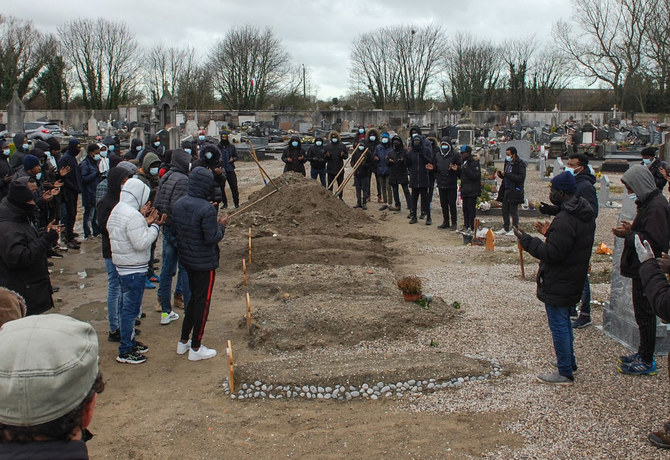BRUSSELS, Belgium: The European Union is open to the idea of sending asylum-seekers to outside countries, even if it is not willing to go quite as far as following Britain and its plans to fly irregular migrants to Rwanda.
The concept of using third countries to host asylum-seekers who have reached Europe is seen in a deal Italy has recently struck with non-EU nation Albania.
It is also foreshadowed in reform of EU migration and asylum laws that the European Parliament puts to a vote on Wednesday, and which contains a provision for sending asylum-seekers to a “safe” third country.
However, the EU law would require a “link” to be shown between the asylum-seeker and the country they are sent to.
Britain’s plan, in contrast, involves having Rwanda become the permanent host nation of all asylum-seekers who had “irregularly” reached UK soil, regardless of whether they had any connection with the central African nation.
That idea has already run afoul of the European Court of Human Rights.
Such a move would not be possible in the European Union because it is “neither in accordance with the current legislative framework nor in accordance with the reforms that will be put to vote,” said Alberto?Horst Neidhardt, a migration analyst at the European Policy Center think tank.
Even so, a couple of EU countries — Austria and Denmark — have expressed interest in following Britain’s path.
And a rise in asylum application in Europe, along with an expected surge for the far-right in EU elections in June, have helped push the European Parliament’s biggest grouping, the conservative European People’s Party (EPP), in that direction.
The EPP — to which European Commission chief Ursula von der Leyen belongs — has made a similar proposal in its election manifesto.
Jens Spahn, a member of Germany’s Christian Democratic Union party that is part of the EPP, argued that fewer irregular migrants would try to reach the European Union “if it’s obvious that within 48 hours they would be sent to a safe country outside the EU,” evoking Rwanda, Georgia and Moldova as possibilities.
Italy’s far-right government of Prime Minister Giorgia Meloni has made a deal with Albania moving toward an offshoring of migrants.
Rome’s accord signed with Tirana in November outlines migrant transfers to detention centers in Albania that would be financed and run by Italy, which would keep responsibility for evaluating asylum claims and applying Italian law to them.
Von der Leyen has hailed that model “as an example of out-of-the box thinking.”
For Jean-Louis De Brouwer, a former mandarin of European Commission asylum and immigration policies who is now director of the European affairs program at the Egmont Institute think tank, said the Italy-Albania plan idea could spread.
It’s the type of bilateral deal that EU countries could also strike with Balkan countries that hope to join the bloc, “for instance between North Macedonia and Germany,” he said.
“It has a certain political logic to it,” he said.
“Candidate countries to join would this way give a clear indication they are ready to take part in a form of European solidarity in the handling of asylum and international protection,” he said.
Even so, given the large number of asylum-seekers, such arrangements would be “a drop in the ocean,” he said.
As for migrant charities and non-governmental organizations, they strongly criticize the migrant and asylum pact to overhaul the EU’s current rules, and slam the idea of EU states sending migrants to so-called “safe” countries.
It would be “a further step in the EU and member states pushing their responsibilities onto non-EU countries, despite the bloc only hosting a fraction of the world’s displaced,” said Stephanie Pope, from the charity Oxfam.
The proposed law to that effect “lowers the protection standards required” in those outside countries, she said.
For Damien Careme, a leftwing French lawmaker in the European Parliament, the proposed change would allow the EU to send sub-Saharan migrants who had lived in Tunisia back to that country, despite “a huge rise in racism” there.
“It’s crazy,” he said, adding that the commission and member countries had an “obsession” about “offshoring migration,” evinced by deals Brussels had reached or was looking to strike with countries neighboring the EU.
EU officials signing those accords, with Tunisia, Egypt and Turkiye, have held them up as useful tools to help stem irregular migration toward Europe’s shores.


























